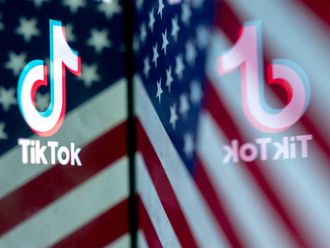
New York: A genome-sequencing contest announced six years ago finally has its first entrant: Life Technologies Corp’s Ion Torrent, which on Monday said it was entering the fray.
The Archon Genomics X Prize will award $10 million to the first team that sequences the complete genomes of 100 people aged 100 or older in 30 days or less, for no more than $1,000 each, and with an error rate of no more than 0.0001 percent.
No one else has been game since the contest was announced in 2006, when it would have taken 33 years and $100 million to do 100 genomes, estimates Ion Torrent founder and CEO Dr Jonathan Rothberg. In January, the company said its Ion Proton Sequencer was ready to sequence a complete human genome in a day at a cost of $1,000.
“I can think of two reasons why companies have not signed up,” said geneticist Craig Venter, who led the private sector effort to sequence the complete human genome, finishing in a dead heat with a government-backed project in 2000. He serves as a trustee of the foundation that created the prize.
“One is that $10 million isn’t a significant sum to them. But when I look at their stock price I see that’s actually a good fraction of their market capitalisation,” he said of companies like Life Technologies and Illumina. “The other reason is that, despite what their ads say, their technology doesn’t measure up. I regard the X Prize as truth serum.”
No other genome-sequencing companies contacted by Reuters said they intended to compete for the centenarian X Prize. Besides the cash and bragging rights, the company that sequences the genomes of 100 centenarians could stumble on some fascinating science and new leads in drug discovery.
“Illumina does not plan to participate,” said a spokeswoman for the company, which fought off a takeover attempt by Roche Holding AG earlier this year. In January, Illumina announced that its next-generation sequencer, HiSeq 2500, will be able to sequence a human genome in about a day.
“We haven’t entered so far and haven’t announced any intention to do so for the time being,” said a spokeswoman for privately held Oxford Nanopore Technologies Ltd, which caused a stir at a technology conference in February when it unveiled a device the size of a USB memory stick capable of sequencing 150 megabases of DNA per hour. The human genome has 6 billion bases, or chemical “letters” that spell out genes.
“We’re waiting to learn more before deciding whether to join,” said Dr Clifford Reid, president and CEO of Complete Genomics Inc, which provides whole-genome sequencing services. Reid wants assurances that there will be “a level playing field and an unbiased measure of accuracy” so error rates are calculated in a way that’s fair to each competitor.
That leaves Ion Torrent.
“All the numbers work,” said Rothberg. “We’ll have eight Protons [sequencers] running at a dedicated facility with about a dozen people, and we’ll be able to sequence up to 100 billion bases every two hours.”
That raw data must be assembled into their order on the 23 human chromosomes, a task analogous to putting the pages of the New York City phone book into the right sequence. The assembly process will take Ion Torrent most of the 30 days it has under X Prize rules.












